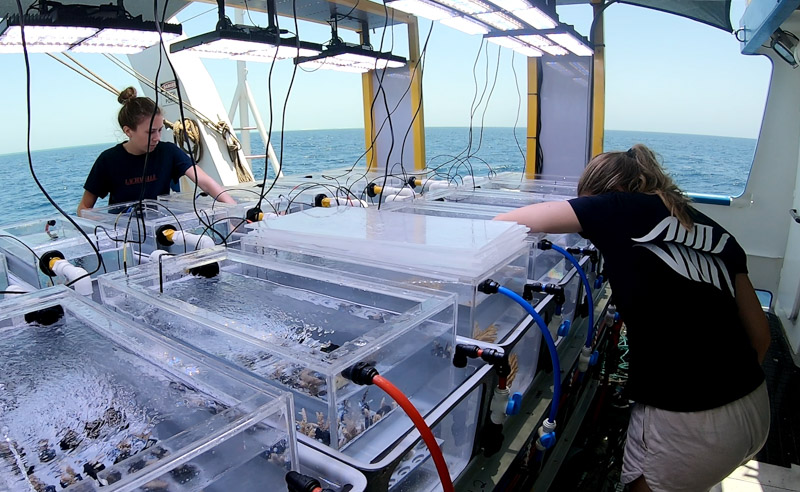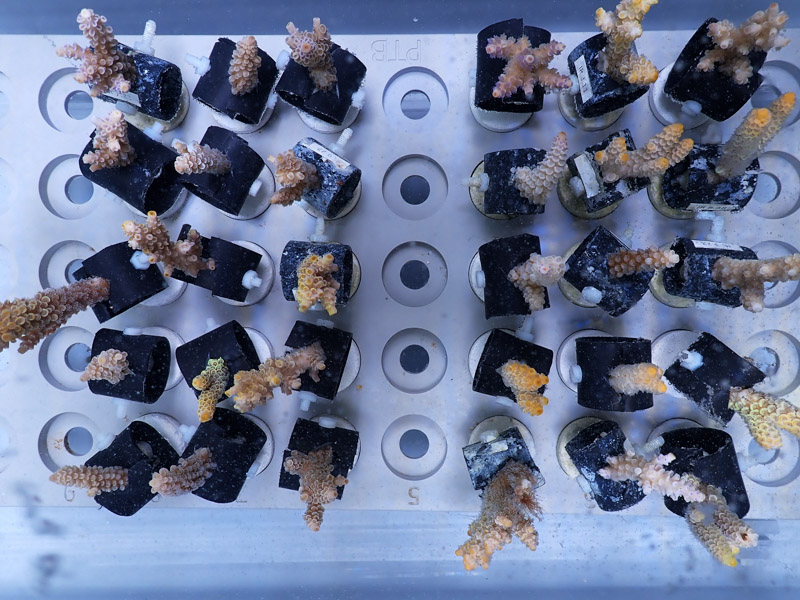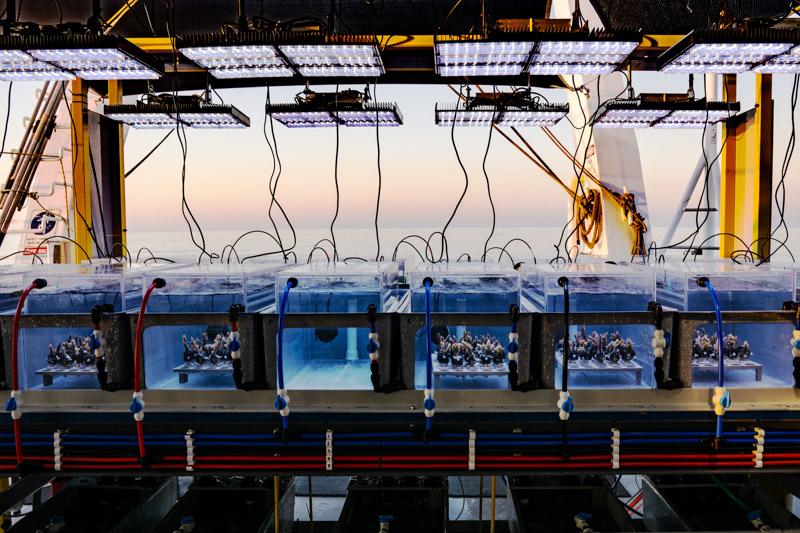High-Tech Lab Sets Sail in Hunt for Heat-Resistant Corals
via the Australian Institute of Marine Science (AIMS)
Marine scientists are using portable ship-borne aquaria in the search for heat-resistant corals that could survive warming ocean temperatures caused by climate change. The specially designed experimental aquarium is operating from the Australian Institute of Science’s largest research vessel, the RV Solander, on expeditions to Western Australia’s remote Rowley Shoals and the Great Barrier Reef.
Dr. Luke Thomas said AIMS’ specialist technicians replicated the technology in the National Sea Simulator, in Townsville, into a transportable system – known as SeaSim-in-a-Box – designed to handle the conditions of Australia’s remote tropical waters.
“We can now conduct high-tech experiments from the back deck of our ship while surrounded by corals on the reef,” Dr. Thomas, a researcher working with AIMS and the University of Western Australia’s Oceans Institute, said.

The SeaSim-in-a-Box uses technology from the National Sea Simulator, allowing scientists to conduct high-tech experiments at sea. Photo: James Gilmour
AIMS climate change scientist Dr. Line Bay is using the technology on the Great Barrier Reef, and he said the idea was to use a standard test to get a snapshot of corals’ bleaching tolerance.

Dr. Line Bay, senior researcher with the Australian Institute of Marine Science.
“These on-board aquaria will allow us to test corals across vast geographical scales and collect samples from corals that we know have been impacted by bleaching events, or are in naturally warmer waters and thus more heat-tolerant corals,” Dr. Bay said.
Bleaching is coral’s stress reaction to prolonged exposure to higher sea surface temperatures.
AIMS coral ecologist Dr. James Gilmour said those corals with heat-resistant genes could serve as stocks for future efforts to help coral reefs adapt to climate change. For this, AIMS scientists also study the heat-tested corals’ genomes.
“We are testing the theory that corals naturally exposed to higher and more variable temperatures on the reef use their genes to cope with extreme water temperatures during times of coral bleaching,” Dr. Gilmour said.

The SeaSim-in-a-Box is testing the capacity of different corals to withstand higher temperatures while in the field. Image credit: AIMS
“This SeaSim-in-a-Box technology can be taken to reefs around Australia to test different corals’ capacity to withstand future climate conditions to deliver cutting-edge information needed to support conventional and new management actions into the future,” Dr. Gilmour said.
Find out more about AIMS’ National Sea Simulator.
Watch video footage from the experiments, courtesy of AIMS:
###





